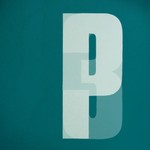Third
Studio Album by Portishead released in 2008Silence | |
Hunter | |
Nylon Smile | |
The Rip | |
Plastic | |
We Carry On | |
Deep Water | |
Machine Gun | |
Small | |
Magic Doors | |
Threads |
Third review
Portishead's triumphal comeback
After a ten year hiatus one of the bands that has given the world the beautiful music called prosaically called trip-hop Portishead comes back with the third studio album simply called Third. Formed in Bristol, England, in 1991 the collective consists of Geoff Barrow (who previously worked with Massive Attack and Tricky), Adrian Utley (before, playing jazz guitar for Big John Patton and The Jazz Messengers) and vocalist Beth Gibbons. Ten years ago the band released a live album and then the members tries themselves as solo artists, but in 2005 they again performed live together in their native town and already then made some hints that they were about to begin recording the new studio work. Finally album Third is ready to please the fans with a heavier and darker material with more rock elements to it and arrangements with a rawer sound closer to lo-fi. Certainly one of the best records of trip-hop style Third has become a great and quite long expected continuation of a unique band's career marking its triumphal comeback.
Beautifully fragile and hard music on Third
The album presents on the one hand a completely new collection of songs recorded in the best traditions of the genre, on the other hand some tracks are reminiscent of what Portishead did years ago and it still sounds up to date. Perfect multilayered beats on each single tracks combine greatly with the vocal parties leading tunes. The impetuous opener Silence stops its running just for a moment to let Beth start singing, and then she continues her almost crying monologue against the background of amazing guitars. Hunter is a slow number although far from light with the soft singing periodically interrupted by the growl of some strange motor or some worrisome instrumental departures. Stylish beat on Nylon Smile are only a part of a complicated system of sounds among which the complicated sad tune determines itself and is underline by wonderful guitars. Unbearably calm at the beginning The Rip gradually turns into a tougher composition built on keyboards and synthesizer, but the toughest of all is track We Carry On, based on the contrast between a heavy bass line and a troubled but measured vocals. Simplistic song Deep Water performed with an accompaniment of some toy-guitar and refined with male back-vocals deserves to be called the most interesting on Third, and the most complicated one is undoubtedly the longest one Small, almost seven minutes long, offering a vastest variety of sound effects. The album closes with Threads which is the closest to old Portishead and reminds how beautifully fragile and then hard its music can sound.
Creations on the edge of heavy and relaxing music
Although Portishead has made us wait for the release of its third work this year it has not failed to make it before such colleagues as Martina Topley Bird, Tricky and Massive Attack, and now Third has all the chances to be the first among the albums of the kind. There is no need to remind that in 1990s it was Portishead to be among the founders of the trip-hop genre standards, and, although today it is not the only collective pursuing the direction its music still sounds impressive. This time modifying the general atmosphere a little bit the team has managed to make creations that slide on the edge separating the heavy music from relaxing one and although some songs are loaded enough with instruments Third is perceived as an integral unit comprising a complicated and multilevel creation. This music could easily serve a soundtrack for some fantastic melodrama or a surrealistic film like those of David Lynch, but even listened through earphones it will give you an unforgettable experience making you fall into a hypnotic dream or dragging you out of it but never letting feel bored.

